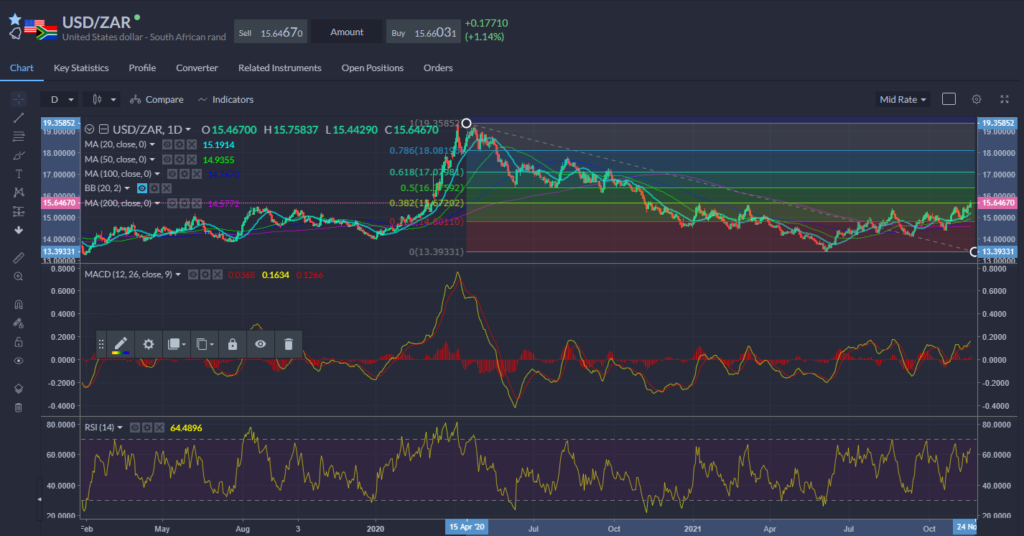
Thursday Nov 18 2021 15:36

3 min
South Africa’s Reserve Bank raised the main repo rate by 25bps to 3.75%, with the prime lending rate rising to 7.25%. Market participants had been split on whether the central bank would tighten monetary policy ahead of the decision, after the SARB had flagged inflation risks last month. In the end, the vote was 3-2 in favour of hiking rates, the first time they have risen in three years.
In a statement, the bank noted that “inflation risks have increased and the level of policy accommodation remains high”. This describes the situation in the US, UK and Europe aptly but so far only the Bank of England is close to hiking – governor Lesetja Kganyago said the decision was not an attempt to pre-empt what advanced economies will do.
Indeed, it underscores the fact that global CBs are entering a multi-speed phase where we will see divergence in monetary policy and, as a result, divergent bond yields and greater volatility in FX markets. As economies exit the pandemic at different speeds and with a different set of inflationary pressures, central banks are in a less coordinated policy stance than at any time for the last 18 months. This is clearly on show in the directional pivot we have witnessed in the EUR as markets push back their rate hike expectations.
The implied policy rate path of the Quarterly Projection Model (QPM) indicates an increase of 25 basis points in the fourth quarter of 2021 and further increases in each quarter of 2022, 2023 and 2024. That is one heck of a hiking cycle. SARB said that “a gradual rise in the repo rate will be sufficient to keep inflation expectations well anchored and moderate the future path of interest rates”.
SARB sees this year’s economic growth at 5.2% and next year’s at 1.7%. The South African central bank has somewhat lagged other EM CBs in hiking rates due to more modest domestic inflation than in places like Russia and Brazil.
Contrast this with Turkey, where the CB has gone into full crazynomics by slashing interest rates again. Earlier today the central bank cut its one-week repo rate by 100bps to 15%, a third cut since the 19% in September. It came after President Erdogan said on Wednesday he’d fight to keep rates down. The lira tumbled, with USDTRY hitting 11 for the first time. Rates will have to go back up at some point.
Despite the hike the rand softened against the dollar, with USDZAR now testing resistance at the 38.2% level of the Apr’20 to Jun’21 swing lower:

